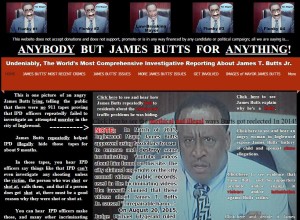Another Censorial Copyright Case Results In a Big Fee Shift–Inglewood v. Teixeira

A different court delivered the same message to the City of Inglewood, but instead of the fee award coming of a billionaire’s pockets, local taxpayers will bear the cost. UGH.
A critic of the Inglewood mayor remixed videos from city council meetings to make his critical points and posted the remixed videos to YouTube. As we know, federal government works aren’t copyrightable, but state and local government works retain the theoretical possibility of being copyrighted even though the odds of getting a court to agree are exceedingly low. Most government actors know better than to test this precarious copyright possibility, but thin-skinned mayors don’t always make the most rational decisions.
The court’s condemnation of Inglewood’s ill-advised lawsuit was emphatic and remorseless. The court rejects the video’s copyrightability, but the harshest words come in the fair use discussion:
the Court can scarcely conceive of works that are more appropriately protected by the fair use doctrine and § 107 than the Teixeira Videos. He is engaged in core First Amendment speech commenting on political affairs and matters of public concern. To do so, he has taken carefully selected and short portions of significantly longer works, and embellished them with commentary and political criticism through music, his voice, and written subtitles. Even if California law allowed the City to assert a copyright claim, Teixeira’s activities plainly fall within the protections of fair use.
Not. Even. Close.
With such a decisive opinion, a fee shift seemed inevitable, and the court has now granted it to the tune of $117k. In its ruling, the court continues to berate the city for such a dumb lawsuit:
* “Defendant achieved a complete victory on the merits”
* “Defendant’s videos are textbook examples of fair use works”
* “The Court’s view is consistent with, although in no way influenced by, the universal condemnation the lawsuit received from legal academics and other experts in copyright, First Amendment, and public records law.”
* “the City’s most plausible purpose was to stifle Defendant’s political speech after he harshly criticized the City’s elected officials.”
* “a fee award is necessary to deter future meritless litigations of this kind….a reasonable award of fees will serve to deter other entities, whether public or private, that contemplate bringing unreasonable suits to pressure an individual into abandoning protected activity.”
* “this lawsuit posed a serious threat to critical political expression, and the successful defense against the City’s claims successfully maintained the boundaries of liability under the Copyright Act”
U-G-L-Y.
Now, the real question is: will future copyright plaintiffs be deterred from bringing censorial lawsuits knowing that the 505 fee-shift is part of the deal? Sadly, the answer is no. Censors gonna censor, and copyright law is just too alluring a censorial tool not to risk it.
Case citation: City of Inglewood v. Teixeira, 2:15-cv-01815-MWF-MRW (C.D. Cal. Oct. 8, 2015)
Pingback: Commenting on Viral Video Is Fair Use–Equals Three v. Jukin Media()